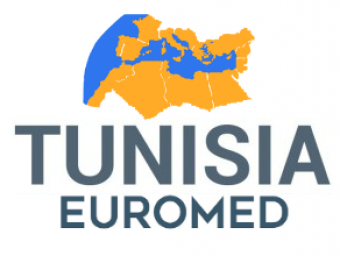QUESTION: Secretary Blinken, thank you for joining us.
SECRETARY BLINKEN: Good to be with you.
QUESTION: At the moment, all eyes are on Tunisia. We know you had a conversation with the Tunisian President Kais Saied. So what did you say to him, if I may ask?

SECRETARY BLINKEN: Tunisia’s been a remarkable demonstration of democracy, and it’s really, I think, been a strong example not just for the region but for the world. And we have concerns about deviating from that democratic map, taking actions that run counter to the constitution, including freezing the parliament. We very much recognize that Tunisians are suffering terribly with COVID-19 and a very, very challenging economy. They need a government, of course, that’s responsive to their needs, but that has to happen in a way that is consistent with, respectful of the constitution.
And so I had a long conversation with the president and urged him to make sure that Tunisia returns to the democratic path as quickly as possible. We also have concerns with any efforts to repress the voices of the Tunisian people, including the media, which we’ve seen some reports of in recent days. So our strong hope and expectation is that Tunisia will return to that democratic path, act consistent with the constitution, unfreeze the parliament, have a government in place to do the work of the people, to be responsive to their needs.
QUESTION: What was the president’s response to you?
SECRETARY BLINKEN: Well, I don’t want to speak for him. That – I’ll let him speak for himself. But he gave a lengthy explanation of both the actions he was – he had taken and his intentions going forward. And the intentions he expressed to me were to return Tunisia to that democratic path and to act in a way that was consistent with the constitution. But of course we have to look at the actions that the president takes, that Tunisia takes.
QUESTION: Closing down Al Jazeera’s bureau immediately after the president’s decisions was very worrying, and we had solidarity with all the journalists, including the National Union of Tunisian Journalists. As a former journalist yourself and Secretary of State of United States, what are your comments?
SECRETARY BLINKEN: My comment is that we stand resolutely for freedom of the press and for the ability of journalists to do their jobs, including in Tunisia. And we look to the Government of Tunisia to uphold and respect the rights of journalists, and that’s one of the things that we expect of them.
QUESTION: How vital is the security of the Gulf countries and the partnership with the Gulf countries to the interests of the United States?
SECRETARY BLINKEN: Well, we have a strong partnership with countries in the Gulf. I’m here in Kuwait to reaffirm that partnership. It happens to be the 60th anniversary of the establishment of diplomatic relations between the United States and Kuwait, and the 30th anniversary of the liberation of Kuwait after the invasion by Saddam Hussein. But as we’re looking at these partnerships we’re not only working to sustain them; we’re working to build on them and to build on them in new ways, not only dealing with many of the diplomatic challenges and security challenges that exist in the region, including in Yemen, including in different ways in Lebanon, in Syria, but also to work together on a whole variety of issues that will have an impact on the lives of citizens throughout the region and in the United States. Health security, food security, collaboration on science and technology, dealing with some of the emerging technologies that are shaping people’s lives – that’s also now part of the agenda with our partners in the Gulf.
But we remain very much engaged, very much present, working in partnership both with individual countries as well as with the, for example, the Gulf Cooperation Council. And I think this visit to Kuwait was a reaffirmation of that.
QUESTION: President Biden did say he was interested and would work to end the war in Yemen. Why hasn’t that happened? What are the obstacles?
SECRETARY BLINKEN: Well, I wish it was like flipping a light switch, but it’s not. But from very early in the administration the President made clear that commitment. We appointed, very early on as well, a senior special envoy to lead our diplomacy, Tim Lenderking, who has been very actively engaged in trying to bring the war to an end with support and engagement from me, from the President himself.
We very much appreciate the plan that Saudi Arabia has put forward to move in that direction. Unfortunately, the reality is that the Houthis have not engaged in a meaningful way, and they need to demonstrate that they’re prepared to end the war, to enter into negotiations, to stop their offensive operations within Yemen, as well as their attacks on Saudi Arabia itself. And we’re resolutely in support of Saudi Arabia, in terms of defending its territory from these attacks.
This is about ending a war and it’s about ending the incredible suffering of the Yemeni people. Yemen, as you know, is perhaps the worst humanitarian crisis in the world. And I hope that the Houthis will demonstrate that they actually care about the people of Yemen, not simply in trying to gobble up more territory. So we’re looking to them to come to the negotiating table, to engage in a meaningful way, and to bring this war to an end.
QUESTION: You decided to withdraw from Iraq and Afghanistan, and this coincides with the Taliban gaining ground substantially. Is the United States prepared to accept a Taliban government in Afghanistan or a Taliban-dominated government in Afghanistan?
SECRETARY BLINKEN: Well, with regard to Afghanistan, first, it’s important to remember why we went to Afghanistan in the first place. We were attacked on 9/11. We were determined to bring to justice those who attacked us and to make sure, to the best of the ability, that that couldn’t happen again. And we’ve largely succeeded in accomplishing those objectives. Osama bin Laden was brought to justice 10 years ago, and al-Qaida, in terms of its abilities to attack us or anyone else from Afghanistan, has been vastly diminished. And we will keep a very close eye on it to make sure that it doesn’t reemerge, and if it does we will do what’s necessary to prevent it from attacking us or from attacking anyone else.
We were there for 20 years, a trillion dollars. More than 4,500 Americans lost their lives. And it is time for Afghanistan to shape its own future. Having said that, even as we’re withdrawing our military forces, we remain very much engaged in Afghanistan with a strong embassy, with support for Afghanistan’s economy, humanitarian support, development support, support for security forces, as well as very active diplomatic engagement to try to bring an end to the conflict at the negotiating table with the Taliban and with the Afghan Government. There is no military solution to the conflict.
Now, if an Afghanistan emerges that does not respect the basic rights of its people, that abuses the rights of women and girls, that does not respect the basic gains of the last 20 years, that Afghanistan will be a pariah in the international community.
QUESTION: Final question is about Iran. What are you offering Iran? When you say the ball is in Iran’s court, what do you mean by that? I know you’re – we’re running out of time, so you’re going to have to be brief.
SECRETARY BLINKEN: So very quickly, we’ve engaged in multiple rounds of negotiations, indirect with Iran in Vienna, along with the Europeans, Russia, and China, to see if we can both come back into compliance with the nuclear agreement. And we have made very good faith efforts to do that. We’ve made clear everything that we’re prepared to do. Unfortunately, Iran has not yet made the basic decision about whether it is willing to do what’s necessary to come back into compliance with that agreement. So that’s what I mean when I say the ball is in Iran’s court. They’ve not yet made that decision.
We hope that they do make the decision. We are prepared to go back to Vienna at any time to focus on diplomacy and to return to compliance with the agreement. But there – this is not – this can’t be an indefinite process. At some point, if Iran continues to make the advances it’s made on its nuclear program, as it’s lifted the constraints imposed by the nuclear agreement, it will get to a point where we can’t deal with that simply by coming back into compliance with the nuclear agreement.
Meanwhile, I might add, we’re seeing significant protests in Iran that began in areas distant from Tehran, but now we’re seeing in Tehran, because people in the first instance are demanding that the government provide for its basic needs, including water, and we’ve seen tremendous mismanagement that has not addressed the needs of the Iranian people. And we’re also seeing them look to their broader aspirations for freedom, and we stand very much with the people who are trying to make their voices heard and call on the Iranian Government to respect the right to peaceful protest and not to repress it.
QUESTION: Secretary Antony Blinken, thank you very much for talking to Al Jazeera.
SECRETARY BLINKEN: Thank you.
QUESTION: (In Arabic.)
SECRETARY BLINKEN: Thank you. Good to be with you.
QUESTION: Thank you very much.
